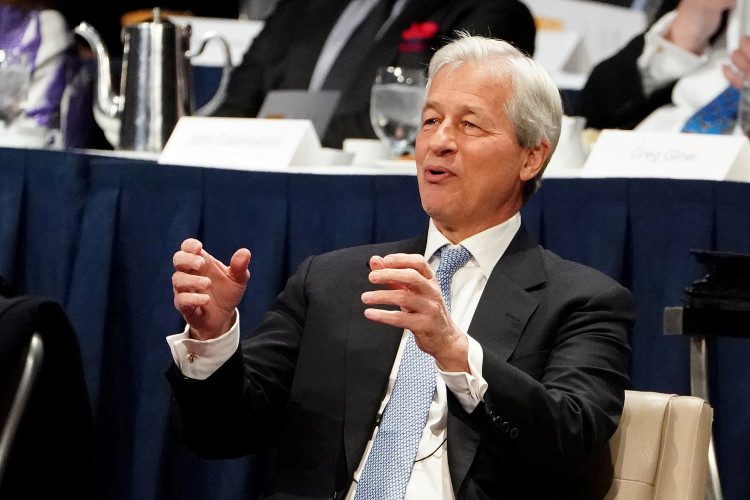JPMorgan Chase CEO Jamie Dimon warned Friday that the U.S. economy is confronting "considerable turbulence," citing heightened geopolitical risks, trade wars, and persistent inflation. The cautionary message came as the bank posted a 9% year-over-year rise in first-quarter profit to $14.64 billion, beating Wall Street expectations.
Dimon said the financial system is entering a period of uncertainty marked by "potential positives of tax reform and deregulation" but also by "the potential negatives of tariffs and trade wars, ongoing sticky inflation, high fiscal deficits and still rather high asset prices and volatility."
"As always, we hope for the best but prepare the firm for a wide range of scenarios," Dimon stated, emphasizing that JPMorgan would maintain "excess capital and ample liquidity" following a $7 billion stock buyback in the first quarter.
The bank increased its provisions for credit losses by 75% to $3.3 billion, signaling growing concern that borrowers may face trouble keeping up with payments amid rising interest rates and economic headwinds. "If you have rates going up a little bit, and inflation is sticky, and credit spreads are gapping out, which they're going to, I think you'll see more credit problems than people have seen in a long time," Dimon told Fox Business Network on Wednesday.
JPMorgan's trading division capitalized on market volatility, with revenue climbing 21% to $9.7 billion. Equity trading surged 48% to a record $3.8 billion. "Clients have become more cautious amid an increase in market volatility driven by geopolitical and trade-related tensions," Dimon said, though Wall Street operations remained strong.
Dimon also addressed the sharp movements in the bond market, where yields on Treasurys spiked. "Every minute," he told reporters, referring to how often he monitors bond yields. Still, he maintained that "America is still a pretty good place in a turbulent world," adding, "This is still the most prosperous nation on the planet."
The bank's first-quarter earnings per share hit $5.07, well above the $4.63 average forecast from analysts surveyed by the London Stock Exchange Group. But shares of JPMorgan, which closed at $227.11 on Thursday, are down more than 5% since the start of the year.
Other financial executives also pointed to the market upheaval linked to President Donald Trump's escalating trade actions, including his 145% tariff on Chinese goods. BlackRock CEO Larry Fink said, "Uncertainty and anxiety about the future of markets and the economy are dominating client conversations." He added, "We've seen periods like this before when there were large, structural shifts in policy and markets - like the financial crisis, COVID, and surging inflation in 2022."
Wells Fargo CFO Mike Santomassimo echoed similar concerns, stating, "We do expect that all these tariffs will have an impact on growth this year in the U.S., and I think many customers are trying to evaluate what that really means to them." He said some clients are likely to "pause at least temporarily" on investments and transactions.
BNY Mellon CEO Robin Vince added, "We are prepared for a wide range of macroeconomic and market scenarios as the outlook for the operating environment is becoming more uncertain."
Dimon said Friday that some signs of market stress are still anecdotal, but he anticipates more strain ahead. "Not yet, but I expect them," he said when asked if defaults are rising. "We are going to serve our clients through thick and thin."
The veteran executive's remarks this week may have carried weight in Washington. Trump acknowledged watching Dimon's Wednesday interview on Fox Business Network, saying, "He was very good," just before announcing a 90-day pause in tariffs for countries other than China. A person close to Dimon said the interview had been scheduled before the president's tariff announcement.
Asked whether he believed his comments influenced the White House's shift, Dimon responded, "I just try to tell people what I think about certain things."






